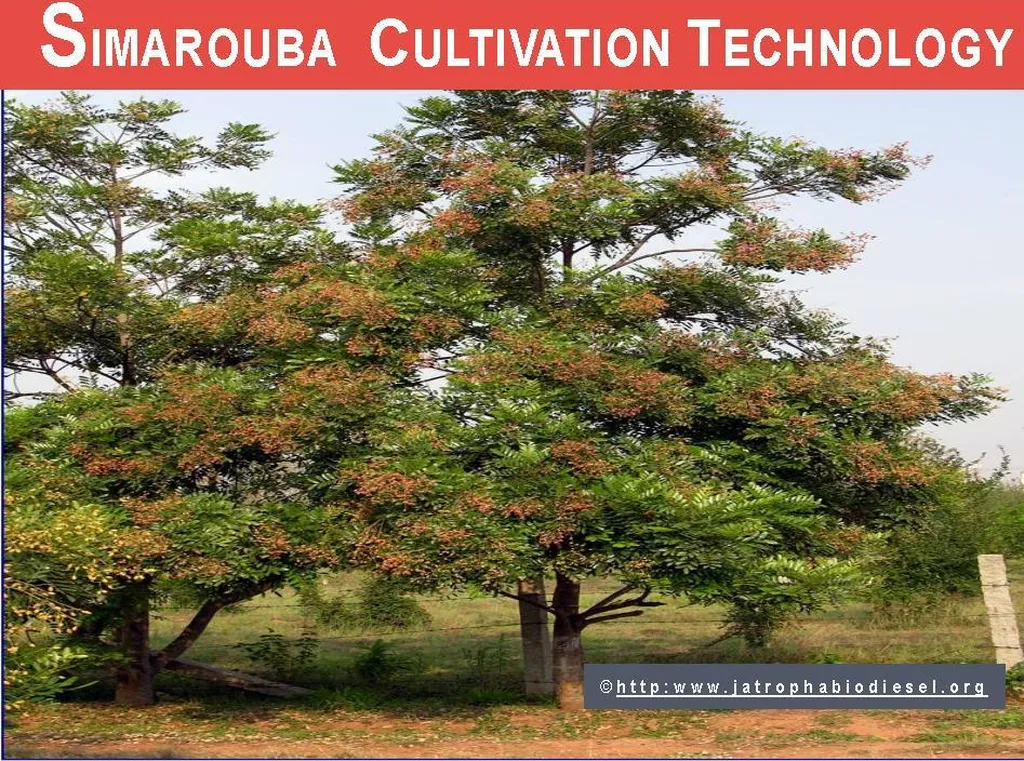In the relentless battle against crop-destroying pests, scientists are turning to nature’s own arsenal for solutions. A groundbreaking study led by Komala G. from the Department of Agricultural Entomology at Tamil Nadu Agricultural University has uncovered the potent insecticidal properties of the Simarouba glauca plant, offering a promising alternative to synthetic pesticides. Published in the journal *Scientific Reports* (which translates to *Nature Research*), the research focuses on the Fall armyworm (Spodoptera frugiperda), a notorious pest that threatens global maize production.
The study evaluated extracts from various parts of the Simarouba glauca plant, using different solvents to identify the most effective bioactive compounds. The results were striking: seeds yielded the highest recovery in n-hexane, while the bark extracted with ethyl acetate showed the lowest median lethal concentration (LC₅₀) of 4.80%. This means that the bark extract was particularly effective in killing the Fall armyworm at lower concentrations.
“Our findings suggest that Simarouba glauca could be a viable natural alternative to synthetic pesticides,” said Komala G., the lead author of the study. “This is a significant step towards developing eco-friendly pest management strategies that support both ecological and agricultural sustainability.”
The research employed advanced techniques such as gas chromatography–tandem mass spectrometry (GC–MS/MS) to identify key metabolites, including gamma-sitosterol and lanosta-8,24-dien-3-one. Principal component analysis and clustering techniques revealed distinct metabolic signatures in the bark extracts, highlighting their unique chemical profiles.
Moreover, the study delved into the molecular mechanisms behind the insecticidal effects. Transcriptomic analysis using RNA sequencing and differential gene expression profiling identified 734 genes with significant expression changes. These genes are implicated in disruptions to metabolic and signaling pathways associated with insect mortality and feeding deterrence.
“Understanding the molecular interactions is crucial for developing targeted pest management strategies,” explained Komala G. “Our molecular docking studies targeting cytochrome P450 and odorant-binding proteins confirmed strong ligand interactions, suggesting interference with detoxification and chemosensory functions.”
The implications of this research are far-reaching. As the world seeks to reduce its reliance on synthetic pesticides, natural alternatives like Simarouba glauca extracts offer a sustainable solution. The study not only provides a new tool in the fight against the Fall armyworm but also paves the way for future research into other bioactive compounds for pest management.
“This research is a testament to the potential of natural products in agriculture,” said Komala G. “It opens up new avenues for developing environmentally friendly pesticides that can help farmers protect their crops without harming the ecosystem.”
The findings of this study could revolutionize the agricultural sector, offering a sustainable and effective solution to one of the most pressing challenges in crop protection. As the world continues to grapple with the impacts of climate change and the need for sustainable practices, research like this is more important than ever. The study not only highlights the potential of Simarouba glauca but also underscores the importance of continued investment in agricultural research and innovation.

